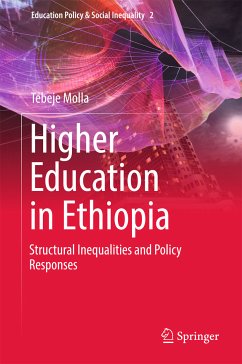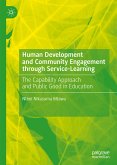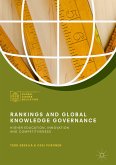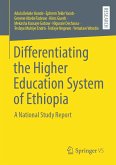This book focuses on higher education in Ethiopia, analysing persisting inequalities and policy responses against the backdrop of the extensive expansion and reform that the system has experienced in recent years. Drawing on empirical data generated through interviews, policy reviews and focus-group discussions, it explicates factors of structural inequality ranging from neoliberal policy orientations to repressive gender culture and geo-political peripherality.
In a departure from conventional studies that consider policy a response to social problems, the book takes a critical perspective to show the constitutive role of policy, and explains how the representation of the problem of social inequality undermines equity policy outcomes in Ethiopian higher education. Not only does the book problematise the framing of the problem of inequality in the system, it also outlines strategies for designing transformative equity instruments. In explainingstructural factors of inequality and equity provisions, the book productively combines sociological concepts with historical accounts and political economy insights.
Given the increased economic optimism associated with higher education in sub-Saharan Africa and the neoliberal ideals underpinning much of the restructuring of the system in the region, this is a timely and important contribution that sheds light on the social justice implications and consequences of such changes. It offers fresh accounts of largely neglected qualitative cases of inequality, making it a valuable read for students and researchers in the areas of Ethiopian education policy studies, international and comparative education, and international development.
Dieser Download kann aus rechtlichen Gründen nur mit Rechnungsadresse in A, B, BG, CY, CZ, D, DK, EW, E, FIN, F, GR, HR, H, IRL, I, LT, L, LR, M, NL, PL, P, R, S, SLO, SK ausgeliefert werden.









